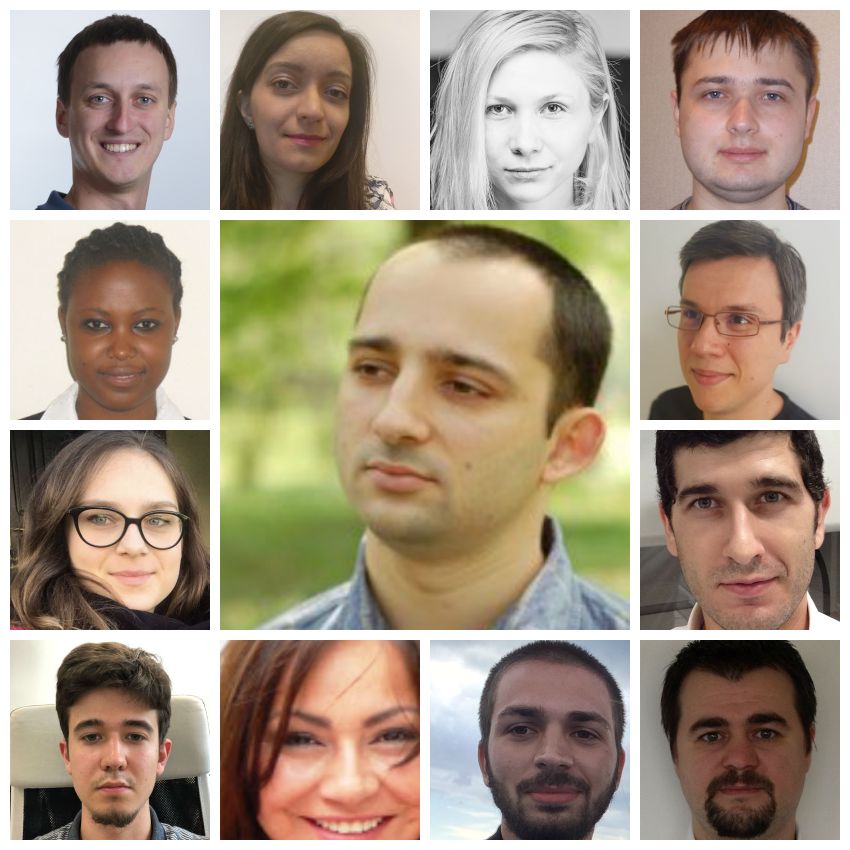
The Systems Biology of Aging Group was founded by Dr. Robi Tacutu in 2016, and is part of the department of Bioinformatics and Structural Biochemistry at the Institute of Biochemistry of the Romanian Academy. The group is currently funded by a recently awarded EUR 1.9 million grant (Romanian/EU co-funded) for the project “Multi-omics Prediction System for Prioritization of Gerontological Interventions”.
The main areas of interest in the group include studying biology of ageing/biogerontology, systems biology and bioinformatics, overall the expertise required to acheive these spanning multiple research fields (from bioinformatics to synthetic biology).
With a highly multi-disciplinary team, the projects tackeled by the group include both computational aspects (data aggregation and processing, multi-dimensional data analysis, network-based methods, systems theory approaches, deep learning, etc.) as well as wet-lab experiments (in particular in-vivo testing of the computationally predicted interventions).
Starting 02.09.2016, the Institute of Biochemistry of the Romanian Academy is implementing the project “Multi-omics prediction system for prioritization of gerontological interventions”, co-funded through European Fund for Regional Development, in accordance with the funding contract signed by the Ministry of National Education and Scientific Research. The total funding for the project is 8.524.757,50 lei, of which 8.502.557,50 lei represent non-reimbursable funding. The project’s duration is 48 months.
The Systems Biology of Aging team is grateful for the "Microsoft Azure for Research" sponsorship awarded to our group. We have received cloud computing resources worth the equivalent of 20,000$ credits, and this has greatly helped us to speed up some of our research projects.
Starting 01.06.2019, the Institute of Biochemistry of the Romanian Academy is implementing the EMBED project, funded by UEFISCDI (contract 103, from 01.06.2019), through the ERA-NET COFUND-NEURON III grant call. The project aims to assess the shared molecular links between pre- and post-natal, metabolic and psychosocial stress, and the risks of depression later in life, and its duration will be 36 months.
The project aims to analyze and compare the age-related transcriptomics signatures in variuos tisues, both in healthy and pathological individuals, in order to identify shared or unique aging signature that drive aging or age-related diseases.
The project aims to experimentally develop an integrated and automated solution for screening drugs and genetic interventions for neurodegenerative diseases, using the nematode C. elegans and ageing-related data.
Databases developed and maintained by our group:
1. SynergyAge DB - a database hosting high-quality, manually curated information about the synergistic and antagonistic lifespan effects of genetic interventions in model organisms, also allowing users to explore the longevity relationships between genes in a visual way.
2. Metaboage DB - a free, open-source, manually curated human aging-related metabolome database, providing intuitive tools for the visualization, interpretation, and analysis of pathway knowledge to support basic research and improve the knowledge regarding the aging process.
3. MitoAge DB - a curated, publicly available database, containing an extensive collection of calculated mtDNA data records, integrated with longevity records.
Computational projects (software) developed by members of our group:
1. Just-DNA-Seq Project – A set of open-source libraries and pipelines designed to generate an all-encompassing, open-source report, which provides comprehensive insights into an individual's health and longevity and encompasses polygenic health risk predictions, longevity related recommendations, and critical health risk variations
Technologies: python poalrs, OakVar, Deepvariant, WDL, bwa-mem2, DVC, pytorch, Docker, Singularity
2. Longevity Genie Project – An open-source project devoted to utilizing the power of large language models for aging research and personalized health data.
Technologies: Large Language Models (ChatGPT API, Hugging face models), LangChain, Unstructured, DVC